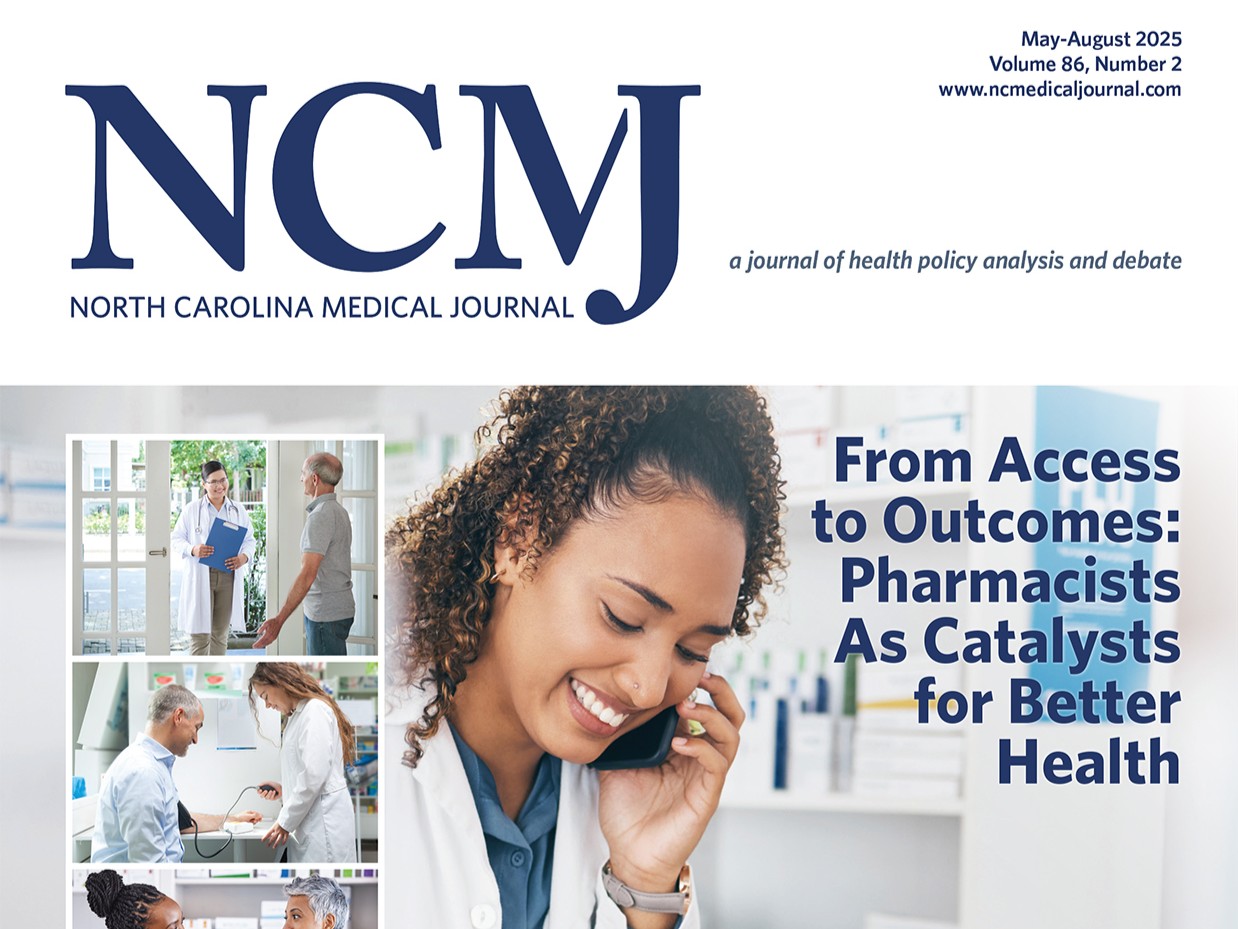Campbell University College of Pharmacy & Health Sciences Dean Dr. Jeff Mercer partnered with Dr. Angela Kashuba, former Dean of the UNC Eshelman School of Pharmacy, to guest co-edit the latest issue of the North Carolina Medical Journal (NCMJ), titled “From Access to Outcomes: Pharmacists as Catalysts for Better Health.”
Released on July 30, this issue explores how pharmacists are transforming patient care through clinical services, disease management and innovative care models.
Mercer and Kashuba also collaborated on an editorial “Essential, Local, and Ready to Serve: Pharmacists as Gateways to Health Access in North Carolina,” which calls attention to the critical role pharmacists play as accessible health care providers and trusted links to the broader health care system.
Two faculty members also contributed to this issue:
- Dr. Richard Drew, professor of pharmacy practice, authored “A Silent Health Care Emergency: The Disappearance of North Carolina Community Pharmacies,” raising awareness of the impact pharmacy closures have on patient access to care.
- Dr. Anna Marie Nye, associate professor of pharmacy practice, co-authored “Medication Access Models for Older Adults and Underserved Populations: Replication and Delivery of Innovative Services Across the State,” highlighting strategies to improve medication access for vulnerable populations.
“This issue of the NCMJ highlights both the tremendous potential pharmacists have to transform patient outcomes and the urgent need to preserve community pharmacy access,” said Mercer. “Today’s pharmacists are trained as clinicians, educators, and navigators, providing access to care in their communities and connecting patients to additional health resources. At this intersection of access and innovation, North Carolina has a unique opportunity to lead the nation in leveraging pharmacists to improve health outcomes, and Campbell is proud to help lead these conversations.”
Since graduating its first Doctor of Pharmacy class in 1990, Campbell has produced more than 3,150 pharmacy alumni. Today, the College graduates include professionals in pharmaceutical research, clinical research, physical therapy, physician assistant practice, public health, health sciences and nursing. Sixty-nine percent of CPHS alumni serve in North Carolina, representing 98 out of the state’s 100 counties, with alumni presence in 49 out of 50 states nationwide.


